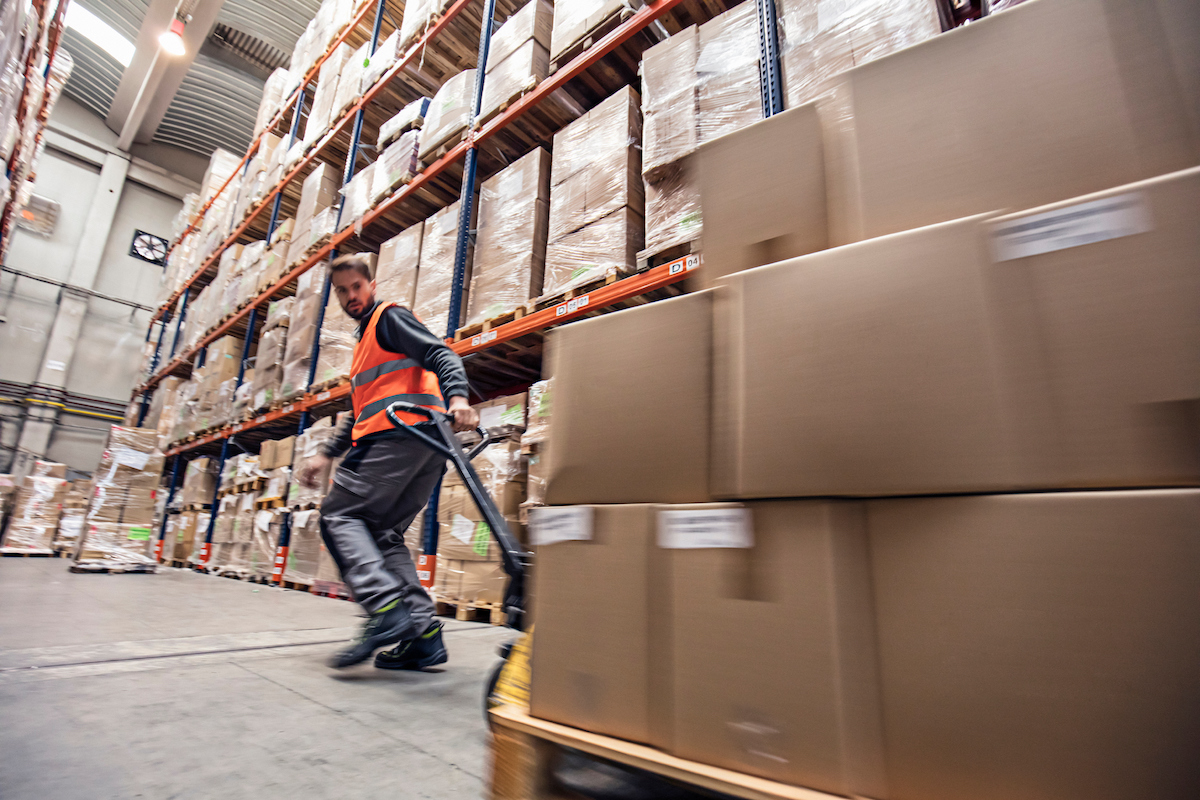
Speed, efficiency, and productivity are the keys to staying competitive for third-party logistics operations, fulfillment centers, distribution centers, and other warehousing operations.
The less time an item spends in a distribution center, the faster it can be loaded on transport and set in motion toward its destination. Operations managers invest in layout design, device technologies, and automation to streamline processes, eliminate waste, and optimize productivity. Without these investments, profitability can be elusive.
Productivity is also important to warehouse workers. They understand the difference between productive, value-added work and motion waste in handling.
Investments in warehouse efficiency can evaporate when items need individual, human attention to correct anomalies such as a carton damage, missing shipping labels, or other issues that prevent packages from being processed. Those bad packages have to be removed from regular processing and dispatched to hospitaling for immediate repair or resolution.
While hospitaling makes sense as a value-added task for human workers, the job of moving those anomalous items is not. All the savings from technology and automation investments can be lost when a worker has to manually move an item to a designated hospital area. And the greater the distance, the more productivity is lost with each item moved by hand.
Package irregularities are unpredictable by definition, so they pose a threat to the efficient movement of items within a fulfillment center. If they’re not dealt with quickly and efficiently, they can create a risk of customer dissatisfaction on the part of the shipper.
Operators need an easy-to-use, low-cost, autonomous solution that can take on the time-consuming task of moving damaged or irregular items. That way, human workers can focus on the tasks that add value.
MūL Mobile Autonomous Robotic Carts (MARC®) offer a simple solution for moving irregular packages without disrupting the efficient operations of processing lines.
This truly self-guided autonomous mobile robot can operate without Wi-Fi, so warehouse “dead zones” aren’t an issue. With a maximum payload up to 250 pounds (110kg) during autonomous movement, it can easily move items that require extra equipment for human workers. Its easy-to-use interface makes it simple to program — just push the cart to the desired location and press a location button for 6 seconds.
MARC uses high-resolution cameras, lasers and proximity sensors to build its own independent map, enabling it to navigate constantly changing facility landscapes. A 360-degree proximity sensor view prevents collisions, and the internal digital gyroscope and accelerometer measure tilt, acceleration, and shock to protect workers and items.
MARC makes it fast and easy for a warehouse worker to remove an item from an automated line, place it on the cart, and send it with the push of a button to hospitaling for remediation. There’s no need for IT support or operator training.
MARC® from MūL Technologies starts achieving ROI the minute you put it to work, trimming time and motion waste from your warehouse operations. Reach out to the MūL Technologies team today to learn more about this cost-effective, simple way to introduce autonomous mobile robots to your facility.
In under 8 months, MARC® offered a return on the initial $14,995 investment.
Additionally, the company was able to save in discrete ways by eliminating
the disruptive nature of stopping to bring the damaged package to a different
area and back.
| Hours per month saved | 33.12 |
| Hourly rate + overhead | $63.25 |
| Cost of MARC | $14,995.00 |
| ROI (in months) | 7.16 |
| Annual savings | $25,138.08 |
Because of MARC’s ease of use, implementation was immediate and adoption rates were high. Associates recognized and embraced the direct benefits of using MARC®.
Extrapolated over a year, the time and money saved by using MARC® provides the company with recurring annual savings of $25,138.08.
MARC® from MūL Technologies helped substantially reduce non-value-add activities, which increased productivity, profitability, and ROI. Isn’t it time to put MARC® work for you? Reach out to the MūL Technologies team to discuss your needs.